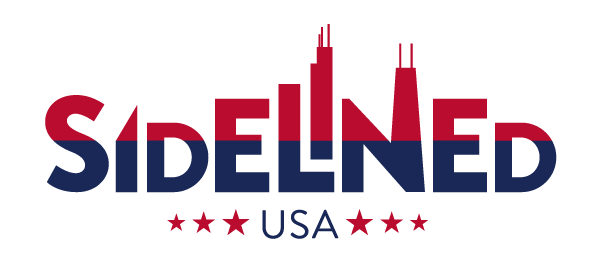Healthy Adjustment to Career-Ending Injury or Health Condition Part 3: Evaluating Internal Coping Strategies
by Jordyn Toia, M.Ed. Sports Psychology
* Start HERE for Part 1 of "Healthy Adjustment to Career-Ending Injury or Health Condition."
As described in some of Sidelined USA’s previous articles, the transition following career-ending injury or health condition can come with significant pain, confusion, and resentment. Though faced with a difficult reality to process, it is important to know your athletic identity does not have to end when your athletic career does.
Being an athlete is not an easy thing to do. It takes grit, discipline, and the resounding capacity to get back up after being knocked down. These are qualities you can continue to nurture in yourself throughout the healing process. Essentially, the same mindset which made you a great athlete has the power to help you overcome the loss you are experiencing.
Responding to Adversity with an Athletic Mindset
Internal coping strategies can briefly be described as our means of dealing with trauma, pain, and stressors within ourselves. Internal coping mechanisms can be utilized in response to a mild disappointment or to a devastating tragedy. To put it simply, how do we deal with the hard stuff?
This question can be deceivingly difficult to answer since most of the time our internal coping is happening on a more subconscious level. After some reflection and persistent awareness of these mechanisms at play, we can identify our positive and effective methods of coping. Additionally, the more we become aware of our unhelpful methods of coping, the better we can work to improve them.
Such a task can be daunting and overwhelming. Sometimes, the most difficult part is just knowing where to begin. Below you will find some sample stressors athletes are often face. Take a second to reflect on how you coped with these stressors during your athletic career. Feel free to brainstorm some of your own, more specific stressors that you’ve personally experienced and identify the coping strategies you utilized in those situations. We encourage you to write these down as well!
Taking the time to identify stressors and responses that occurred during your athletic career can make your personal coping strategies more tangible to implement and improve. After identifying your effective and helpful responses, you can begin to use them in your healing process and in life beyond the court or field by applying those same coping strategies to your current challenges.
For instance, the athlete who did not make the team demonstrated “reframing.” He was able to adjust his negative perception of a situation into a positive perception. He found the good in the events that followed a disappointment. Being able to reframe the conclusion of your athletic career can help you to move forward. Perhaps now you’re afforded with more time for other areas of your life. Maybe this is an opportunity to try something new.
The athlete who was able to push through physical exhaustion did so by using the image of accomplishing her goal as a motivator. Do you have any goals for life outside of your sport? Can you envision your best life five years from now? If so, that can be a great jumping off point for reinventing your athletic identity and setting new goals.
The athlete who lost his temper and threw his helmet may recognize this as a pattern in other facets of his life. Identifying this unhelpful response can help him to address it and improve upon it. Taking the time to recognize and identify your emotional responses, thoughts, and reactions to stressors will help you to utilize every skill in your arsenal when dealing with this loss. The next step, implementing your already helpful coping skills and taking action to improve upon the harmful coping mechanisms, is a very real challenge. It will require discipline, commitment, and perseverance . . . similar to what is required of an athlete. So if anyone can do it, it’s you!
Continue reading in this series: Part 4: The Rebuilding Phase
Continue reading about coping strategies with these additional articles: Beyond the Game: The Power of Mental Vigilance in Overcoming Challenges and Becoming Sidelined: Managing Negative Self-Talk.
Disclaimer: This article is for informational purposes only. Neither Sidelined USA nor its affiliates provide clinical or medical care of any kind via their relationship with Sidelined. At no time should a user have an expectation of clinical care or professional services offered or rendered.
Jordyn Toia
Content contributor, Sidelined USA
“I jumped at the opportunity to help an organization that works to provide care and resources to such an underserved population of former athletes. In society, we tend to value athletes for not much more than their athletic prowess and physical productivity. Athletes are whole human beings and should be treated as such. I think a great way to begin to make this shift is to create dialogue, provide resources, and validate those who have been forced to reinvent their lives and identities without competing as athletes in their sports.”



